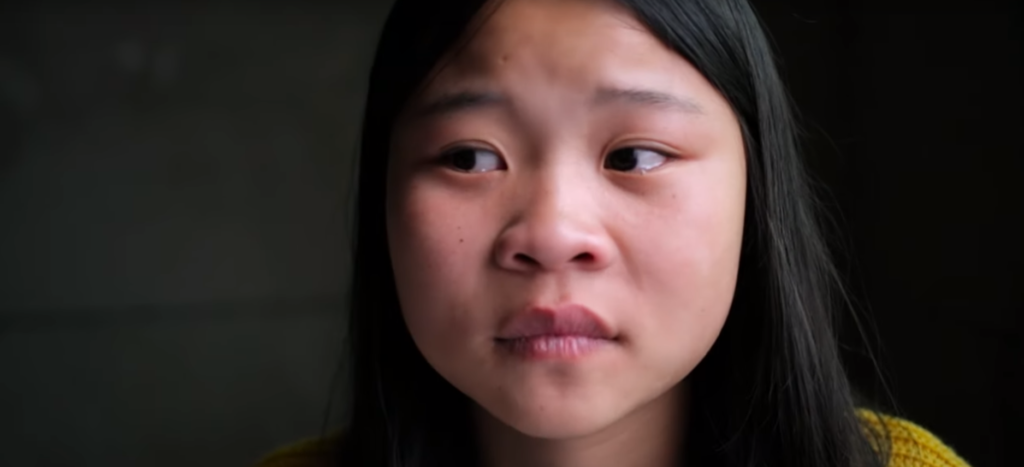One Child Nation (Nanfu Wang, Jialing Zhang, 2019): China| USA
A film reviewed by Alejandra Melchor. Viewed at the 2019 AFI Feast.
 One Child Nation is a film about award winning filmmaker Nanfu Wang’s journey to uncover how China’s one child policy affected her family and others from 1979 to 2016. Wang personally interviews her family, medical personnel, artists, and international families who adopted children during this time, families who claimed to have their children kidnapped by the government and human traffickers. Before One Child Nation Wang worked on Hooligan Sparrow (2016) and I Am Another You (2017), both are documentary film as well, with I am Another You winning two special Jury Awards at SXSW film festival in 2017. One Child Nation won the Grand Jury Prize for Documentary Feature at the 2019 Sundance Film Festival.
One Child Nation is a film about award winning filmmaker Nanfu Wang’s journey to uncover how China’s one child policy affected her family and others from 1979 to 2016. Wang personally interviews her family, medical personnel, artists, and international families who adopted children during this time, families who claimed to have their children kidnapped by the government and human traffickers. Before One Child Nation Wang worked on Hooligan Sparrow (2016) and I Am Another You (2017), both are documentary film as well, with I am Another You winning two special Jury Awards at SXSW film festival in 2017. One Child Nation won the Grand Jury Prize for Documentary Feature at the 2019 Sundance Film Festival.
The documentary film explores the controversial implementation of the one child policy. By 1980 the policy was in effect nation wide. It called for most families to have only one child in an attempt to control population growth.
It was surprising to see and hear the support and defense of this law. The documentary had a balanced approach. It shows why people supported the policy then and today. The film also shows the negative effects this social experiment has had on China over time. In a way it allows viewers to understand both sides of the issue. The film doesn’t seem to want to criminalize one side or the other. Instead it seeks to educate and bring awareness to a subject close to the director’s heart.
At times I was reminded of director Joseph Sargent known for his work on Jaws: Revenge and Star Trek: The Original Series. He directed a 2003 film called Out of the Ashes. It tells the story of Gynecologist Dr. Grisella Perl, a Jewish Hungarian inmate in Auschwitz. She believed to have preformed nearly 1000 abortions while a prisoner within the camp. I am reminded of her resolve and determination to continue her practice after the war. Similar to Huaru Yuan who after preform abortions, deliveries and sterilizations, retired from the family planning program and started to practice fertility medicine. Both sought redemption for what they took part in. For Yuan it was the words of a Buddhist priest who pushed her to treat fertility couples. For Dr. Perl it was the drive to bring life back into the world. Before entering the delivery room Dr. Perl would say a prayer. “God you owe me a life – a living baby.”
One leaves the film with sadness, questions, and not only thinking about the political state of China currently, but of the United States as well.
About this entry
You’re currently reading “One Child Nation (Nanfu Wang, Jialing Zhang, 2019): China| USA,” an entry on Student Film Reviews
- Published:
- 11.21.19 / 11am
- Category:
- AFI Filmfest 2019, Films
2 Comments
Jump to comment form | comments rss [?]